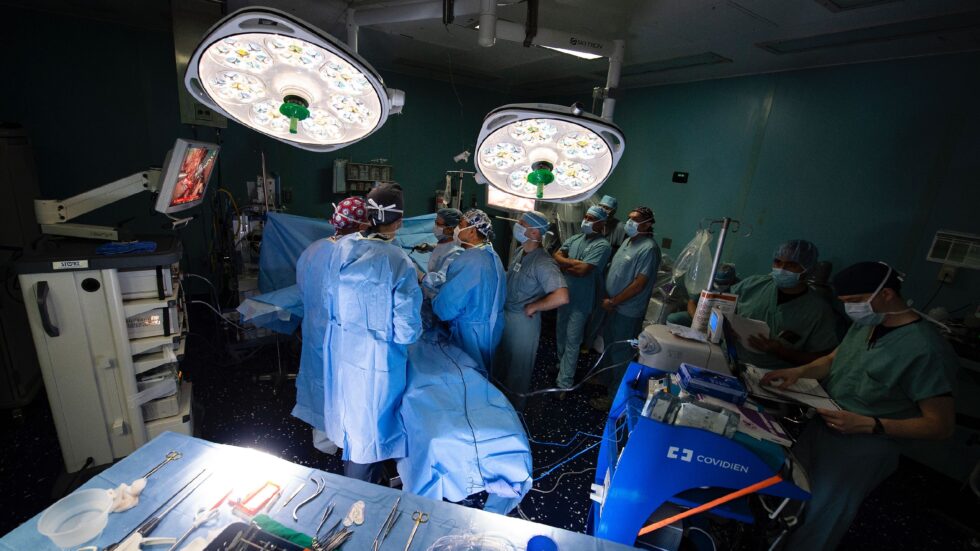Hey! You might be dying! - Why stubbornness can kill
A common trope amongst the military is stubborn attitude. Being stubborn can have its perks, as it shows loyalty to the things you believe in. It can also have its downfalls, like making you avoid things that are actually good for you.

Nosocomephobia and iatrophobia are the phobias of medical tests, and hospitals/doctors, respectfully. Now you might not have a clinical phobia, but it is understandable to be fearful of the world of medicine.
When you don’t know how or what complete strangers are doing to you, it can be scary. But what’s even scarier is not knowing what it is that you’re feeling within yourself.
Preventative screening is important for many reasons. It’s one of the best things you can do for yourself. Recently, a VA healthcare provider(who wished to remain anonymous) stated a lot of fear and anxiety surrounding hospital visits have led to less people getting screened during the last two years. Furthermore, when those people finally do go to the hospital, their health issues are typically in more advanced stages.
Some of the biggest culprits that come to mind are various forms of cancer. This can be more common in Veterans who were deployed near burn pits and other toxic exposures. Early screening is incredibly important in these cases. However, there are other serious health concerns that might be written off by someone used to “toughing it out.”
Here are some common health emergencies that not everyone may be able to identify without a medical background. Being able to spot your signs and symptoms with specific cause can be life saving, or at the vary least give you more peace of mind. If you experience any severe anxiety, fear, or the sense of impending doom, it is advisable to go to the emergency room regardless. It is always better to be safe than to be sorry.
Gallstones/Cholecystitis
Your gallbladder is tucked nicely within your liver, located on the right side of your body, right below your ribs. Your liver and gallbladder work together to help with your digestion. The gallbladder specifically creates a bile to help digest fats. Though this organ is tiny, it is mighty. If there is too much cholesterol or bilirubin, hard stones can form and potentially cause blockages in the organ. When this happens, it can cause intense pain.
The pain is typically localized to the stomach area, or have referred pain in the right shoulder. Brief episodes of this type of pain, typically right after eating fatty meals, can be warning signs. The more gall stones that fill up your gallbladder, the more pain you will have, alongside the less affective the organ will be.
When the organ can no longer function as it should, more damage can occur, and infection can set in. This could lead to sepsis, or worse. If pain persists in the stomach area for an extended period of time- more than an hour or so- that would be cause for concern.

The gallstones from the diseased gallbladder taken out of a paitent by U.S. Air Force doctors in Honduras as part of the New Horizons Honduras 2015 training exercise. (U.S. Air Force photo by Capt. David J. Murphy/Released)
Heart Attack
Heart attacks are typically seen in the older population, however, that’s why its important the stubborn middle crowd knows what to look out for. Heart attacks typically feel like chest pain or pressure. There can be back pain that goes into the shoulders, followed by arm pain as well.
Sometimes this pain can resolve itself, most commonly found after exerting yourself physically. That is a typical warning sign that there could be more trouble down the line, and should be checked out before that type of pain becomes constant and reoccurring.
Any type of chest pain that lasts for an extended period of time should be considered a potential emergency. Atypical signs and symptoms of heart attacks are found in women, diabetics, and the older population (older that 75). Those signs and symptoms include; sudden fatigue, shortness of breath, tightness of the throat, pain in the stomach and arms, the feeling of indigestion, sudden cold sweats, and jaw pain.
These signs and symptoms are emergent, and should be taken seriously. It is not unheard of for individuals to ignore these issues, have mini heart attacks, that often result in worsening heart attacks that are harder to recover from in the future.

John Sessums, 59th Medical Specialty Squadron respiratory care practitioner, places electrodes on a patient as part of a Cardiopulmonary Exercise Test at Joint Base San Antonio-Lackland, Texas, Feb. 24, 2022. (U.S. Air Force photo by Senior Airman Melody Bordeaux)
Pulmonary Embolism
Typically known as a PE, its sort of like a heart attack for your lungs. An embolism is a blood clot that forms in one part of your body, becomes dislodges, and flows throughout your blood stream until it settles again- which can cause some serious damage. A clot the settles in the lung can disrupt the ability to maintain your breathing. It’s sort of like choking from the inside, and can usually be seen on an electrocardiogram (EKG).
The most common risks to developing a PE is being a woman, being on birth control, being overweight, smoking, and recent surgery. If you have a predisposition to blood clots, however, a PE is something you should be on the lookout for as well. Typically the pain form a PE resides in the chest and causes breathing difficulty. PE’s require immediate intervention.
There are many other casual ailments that can plague your day-to-day life. Too many to write in an article. However, it is important to keep in mind that your health plays an active part in your life. To live chronically with these issues, it can make tasks that once were simple seem like a burden. If you feel as though there is something wrong, follow your hunch and ensure that you’re doing all that you can to protect yourself.







Conversation